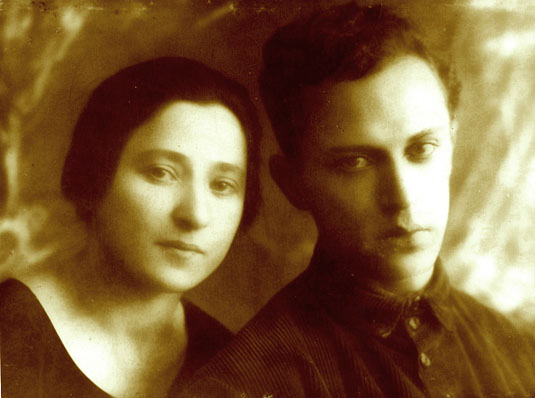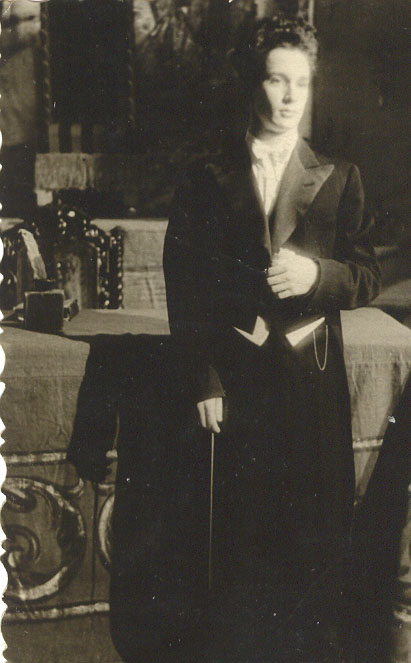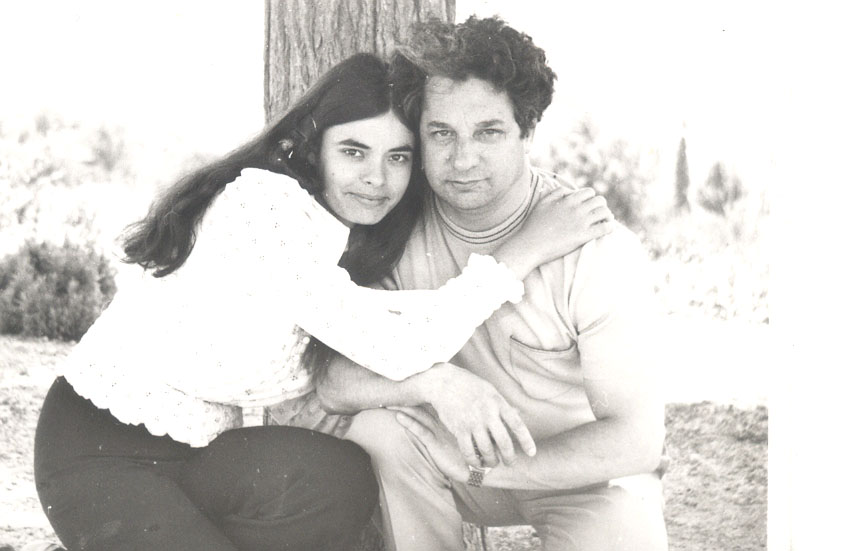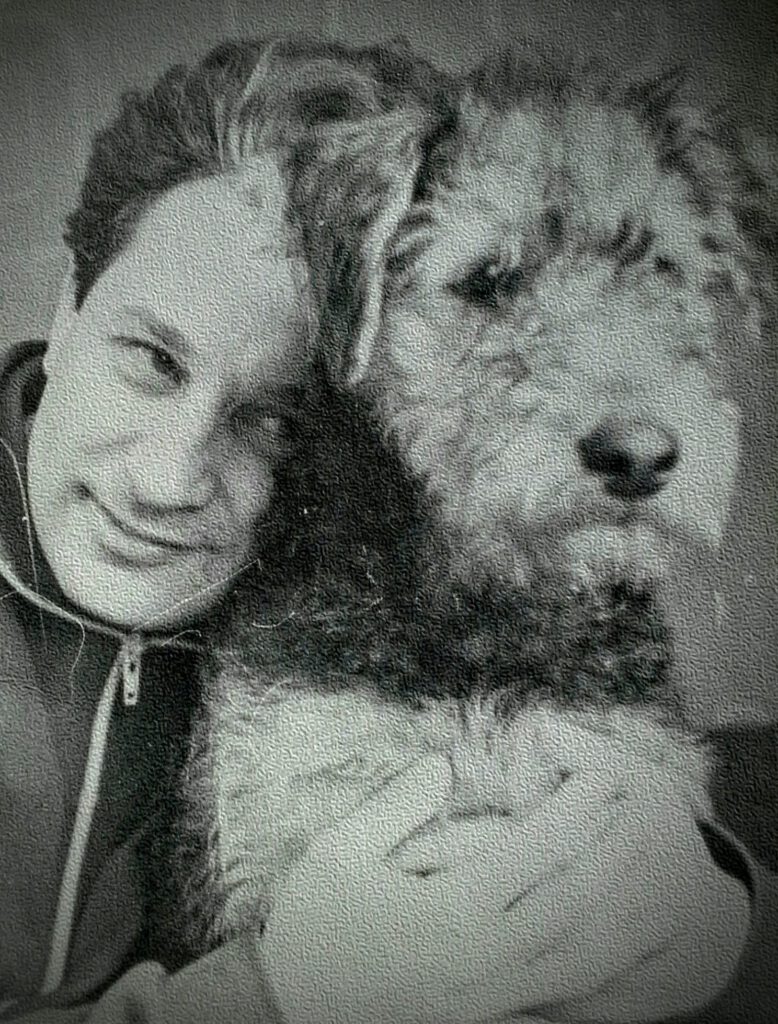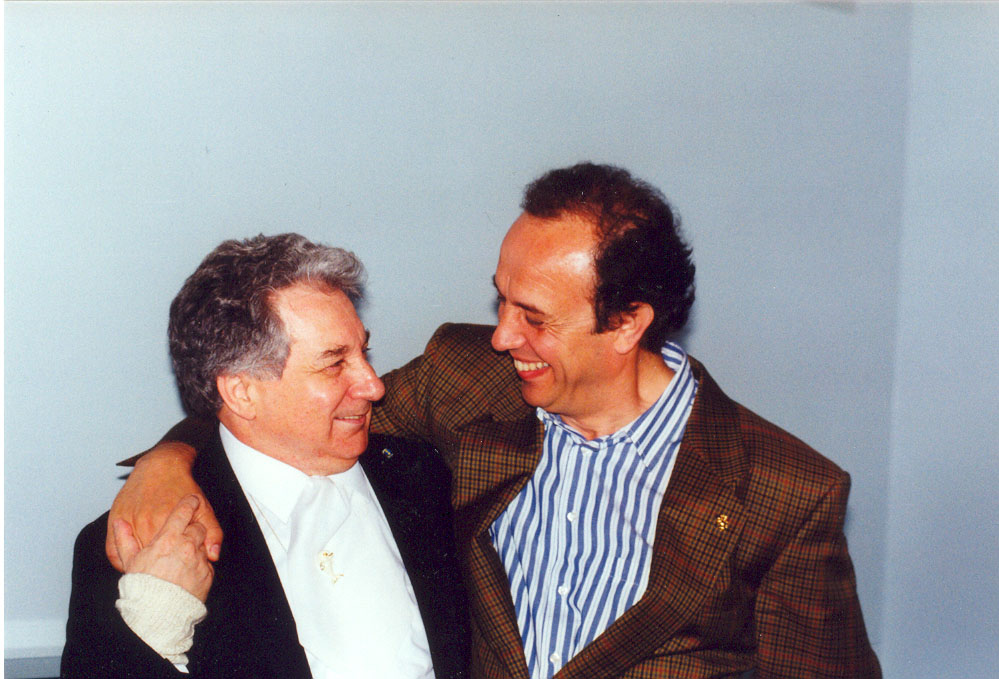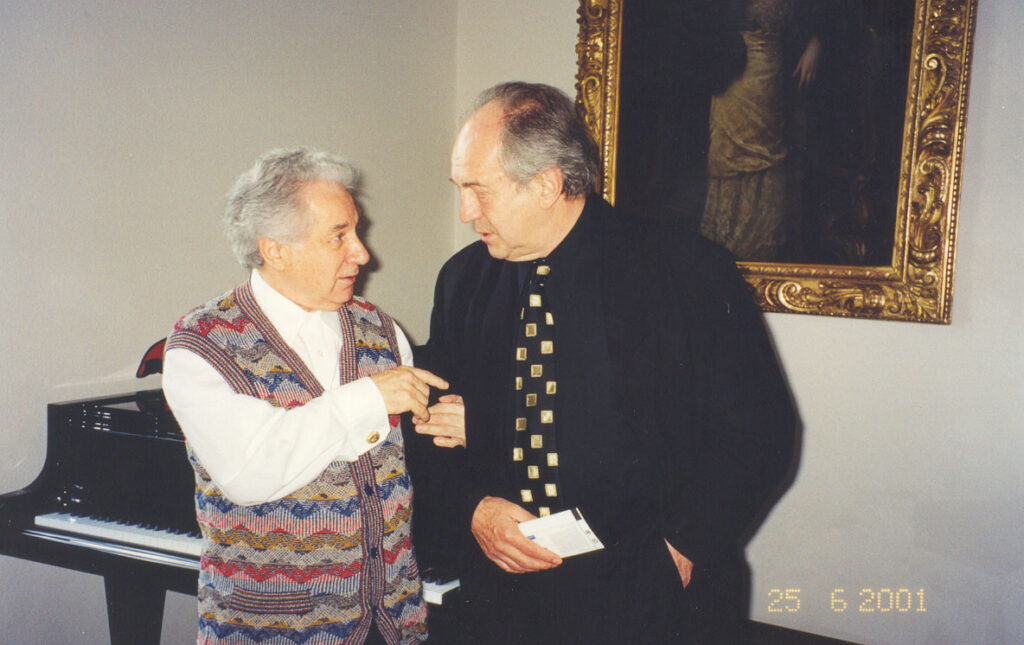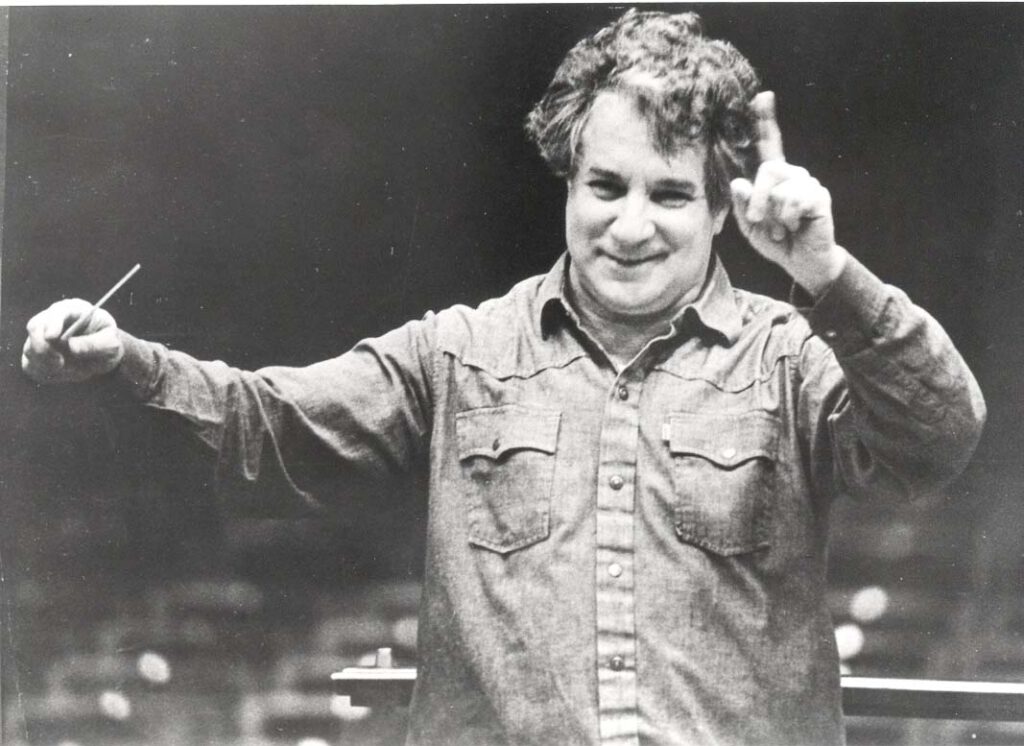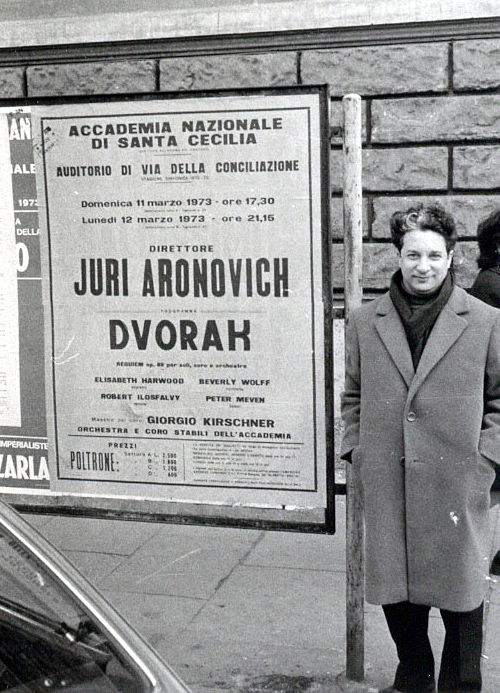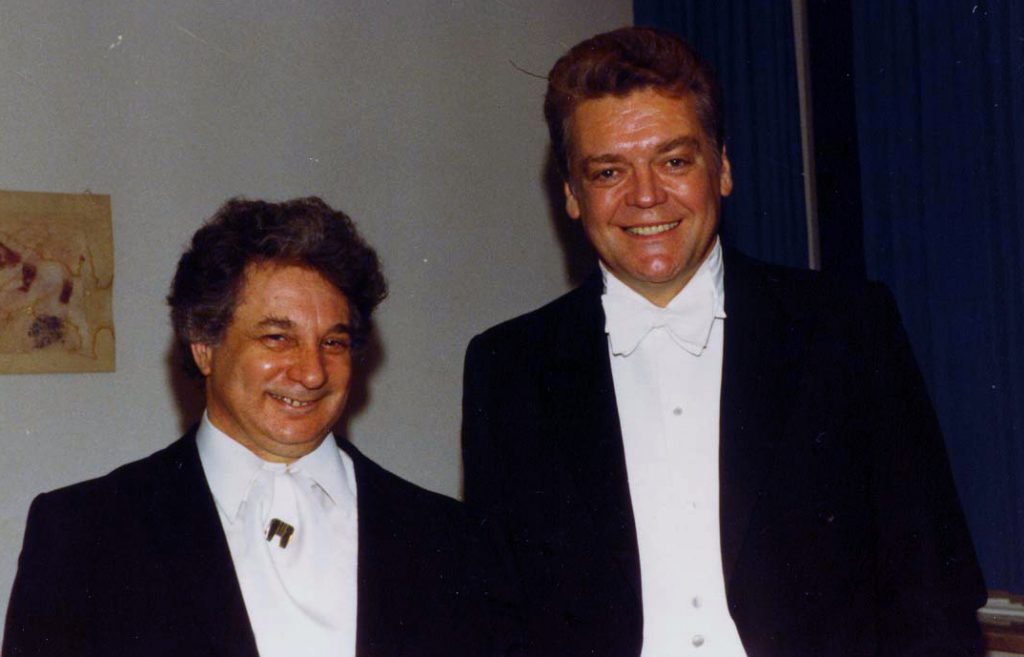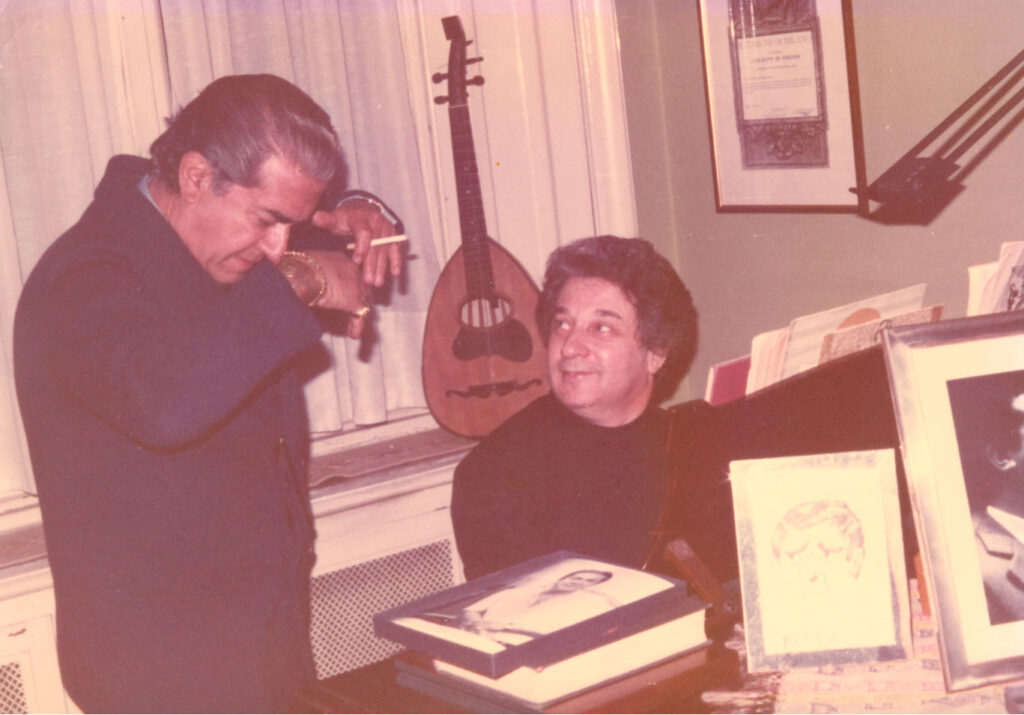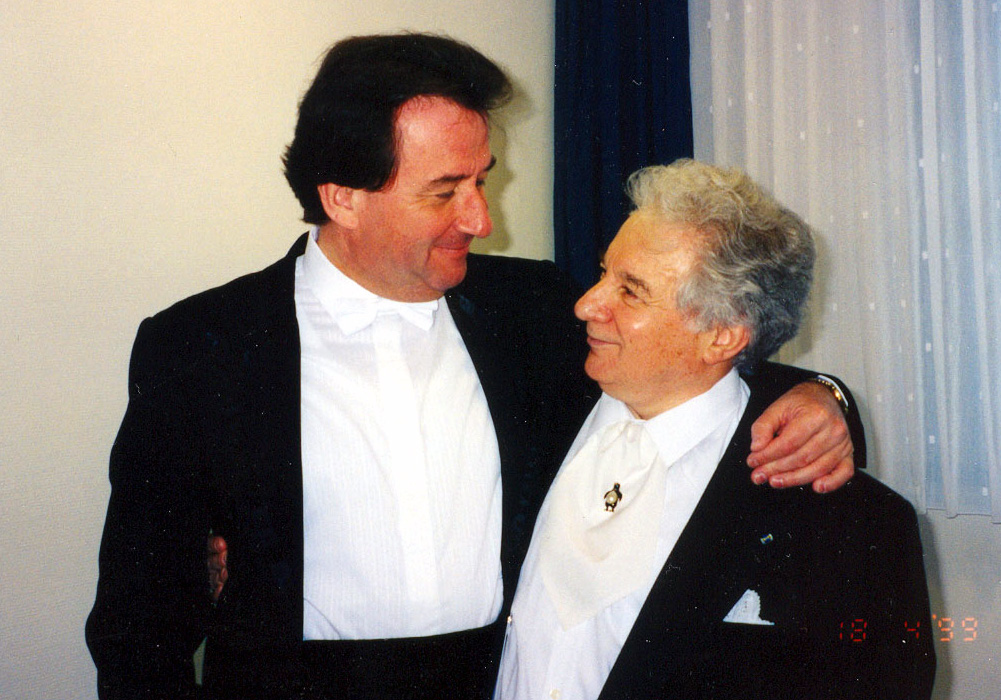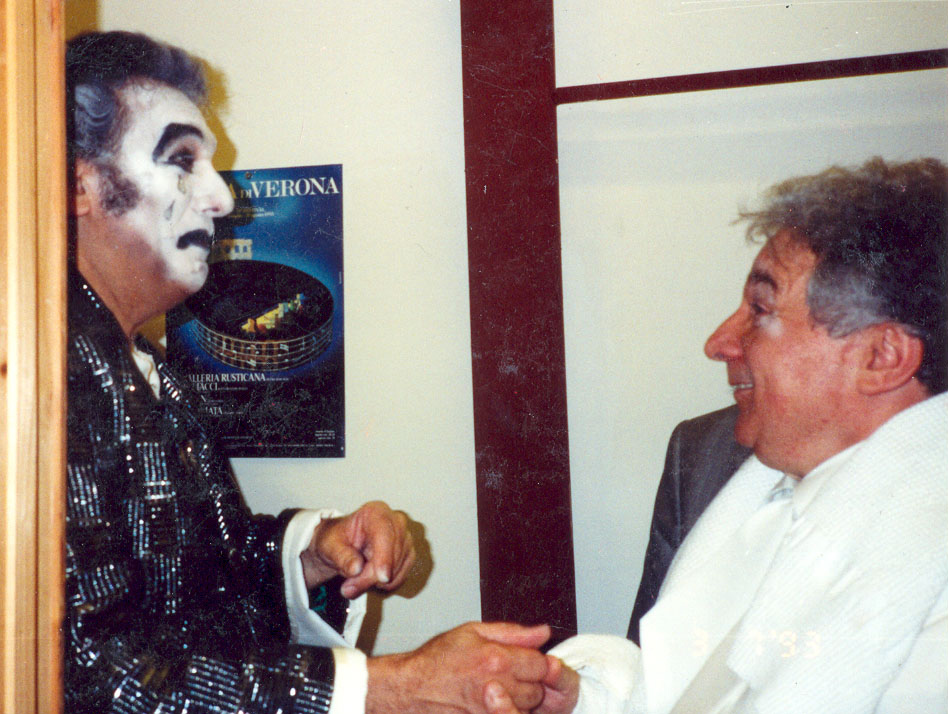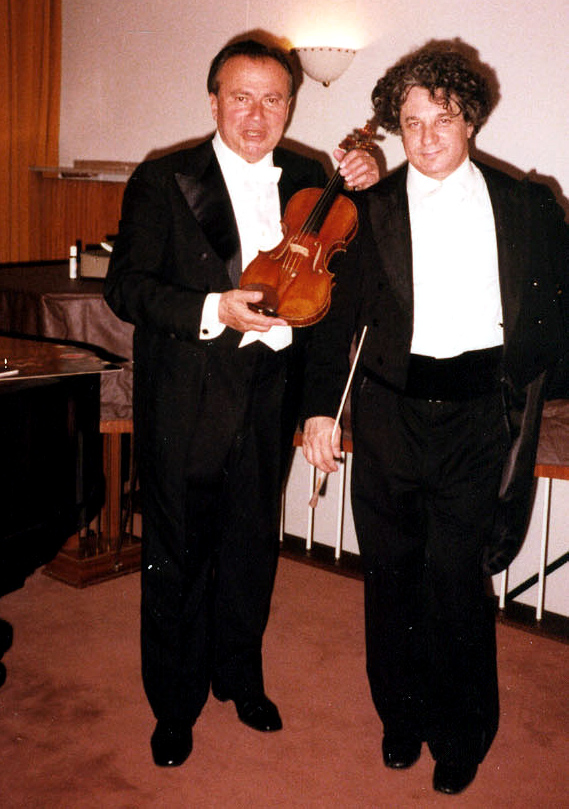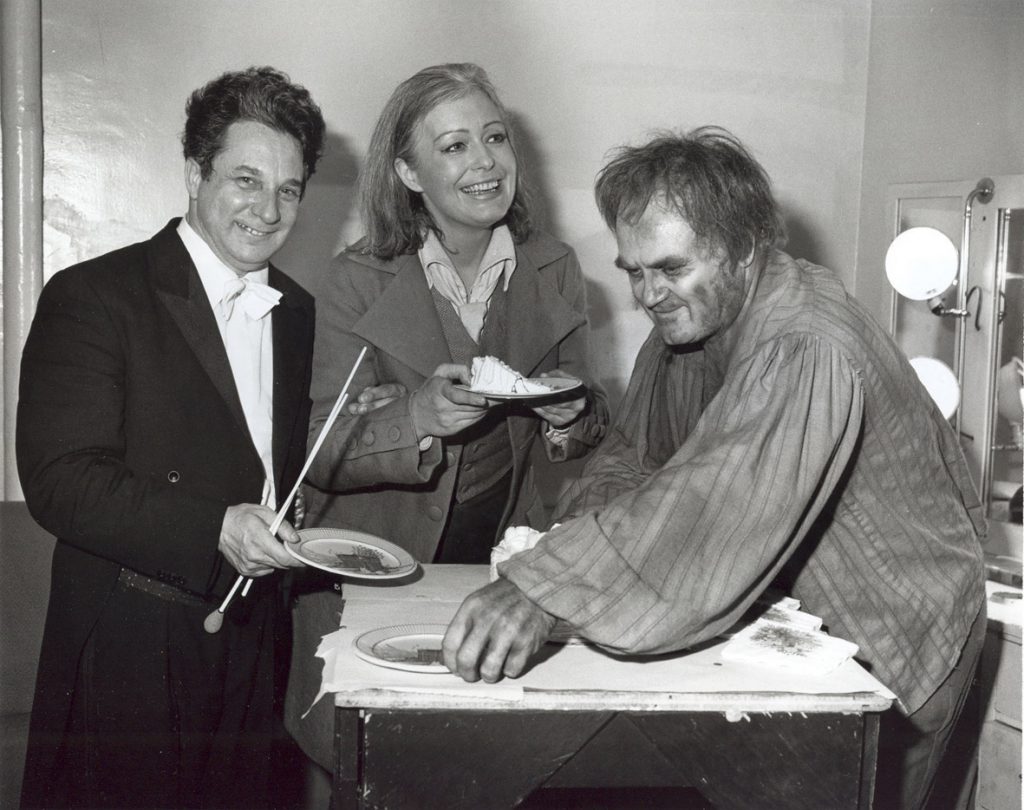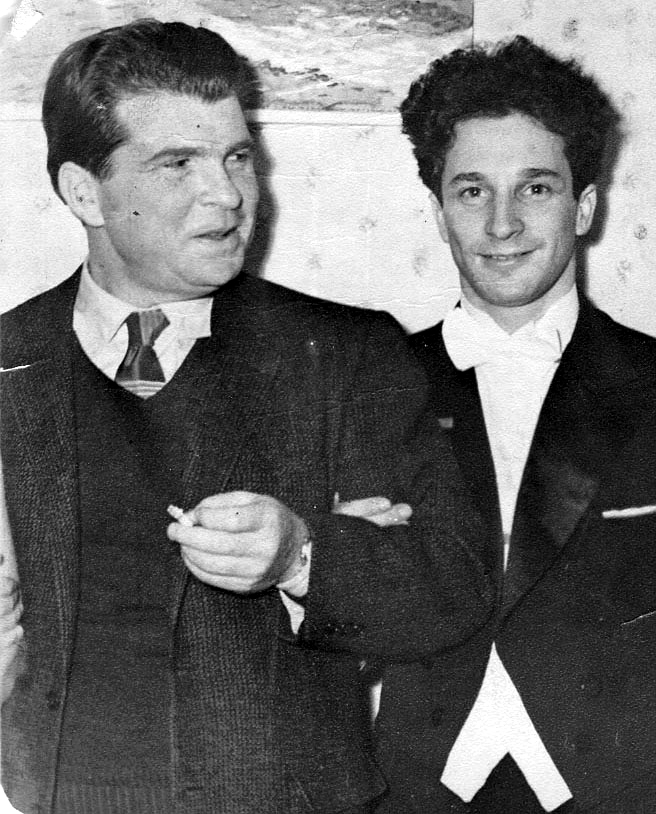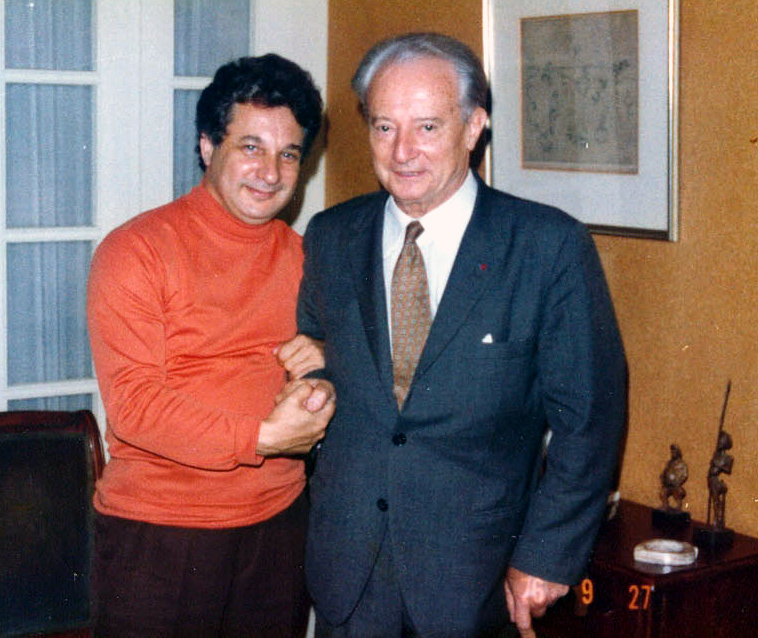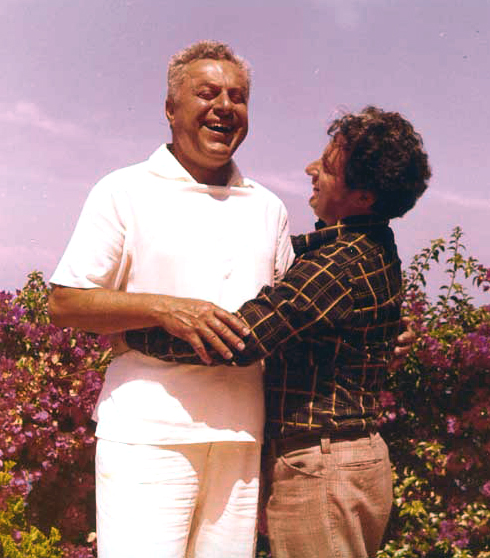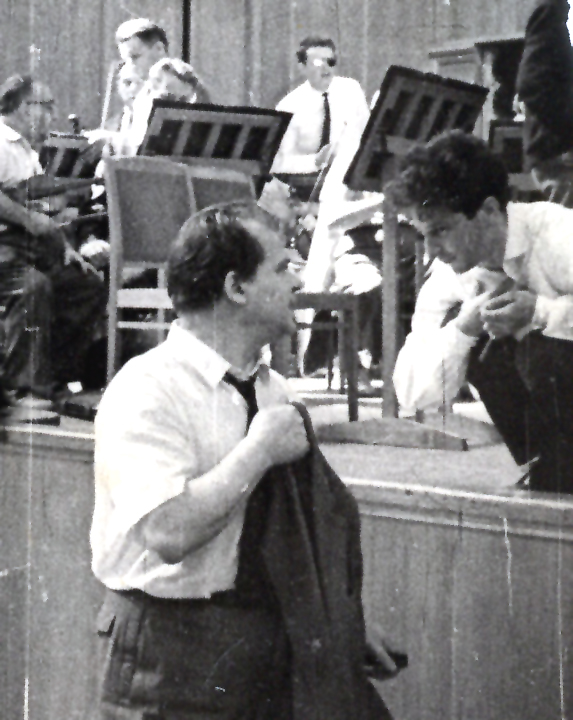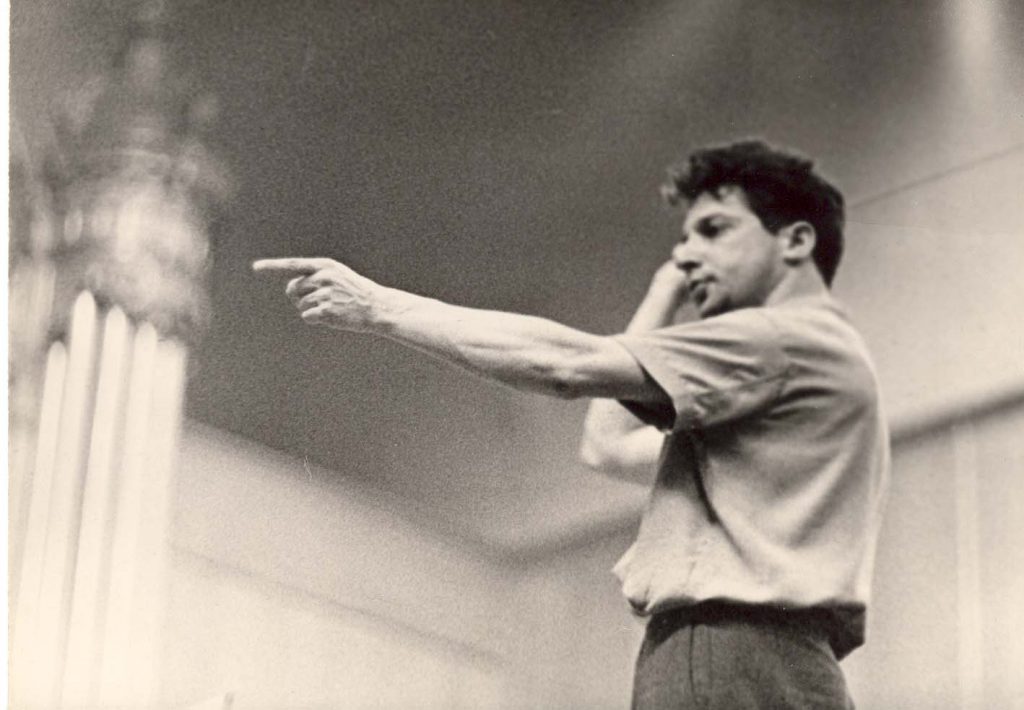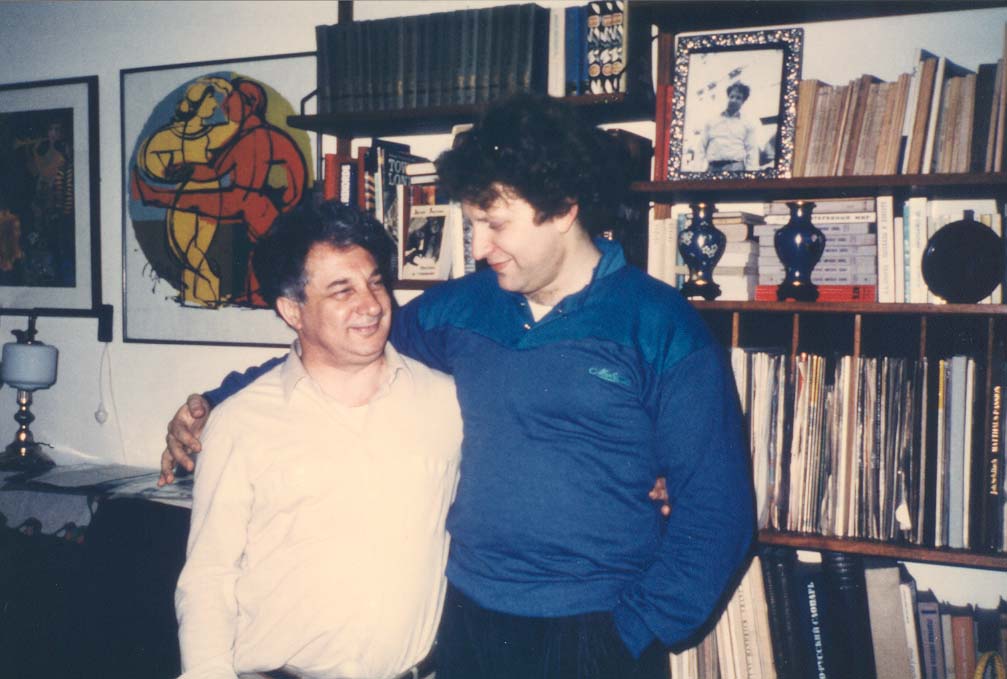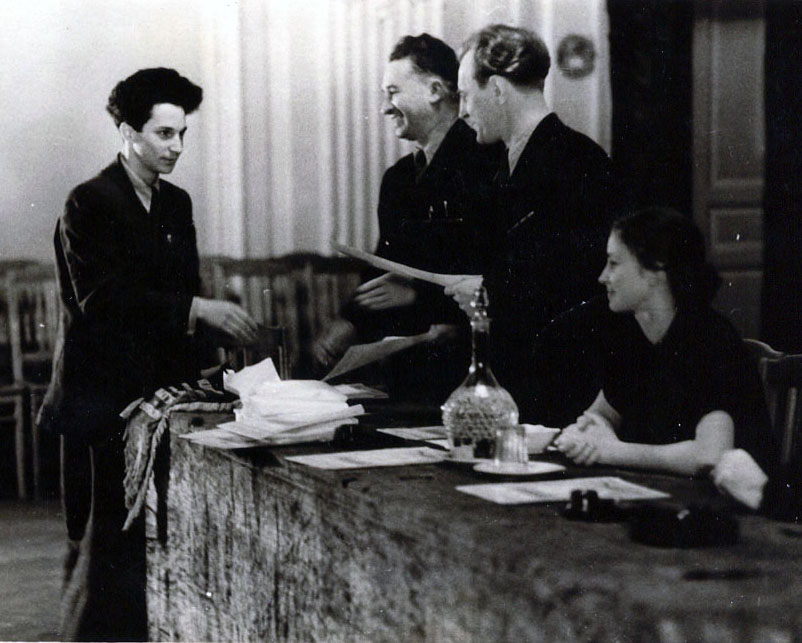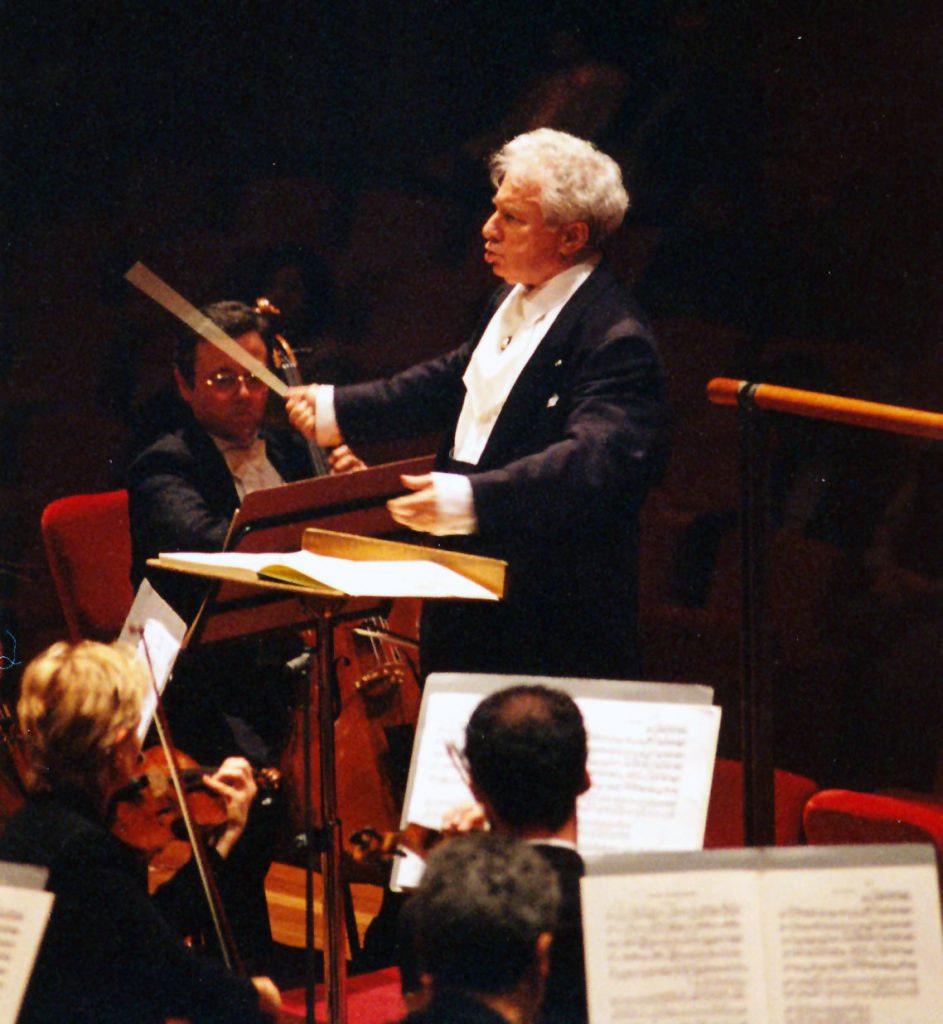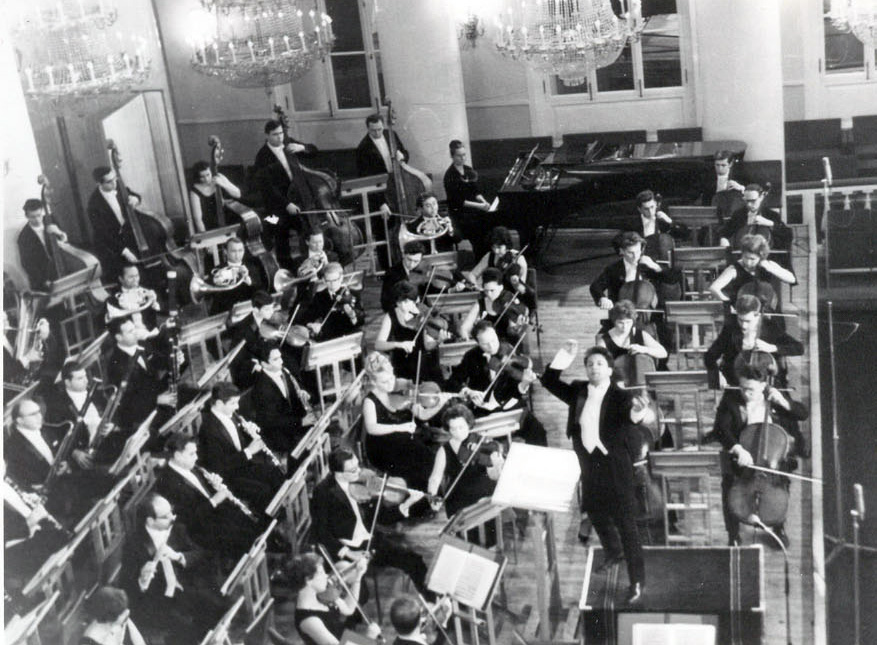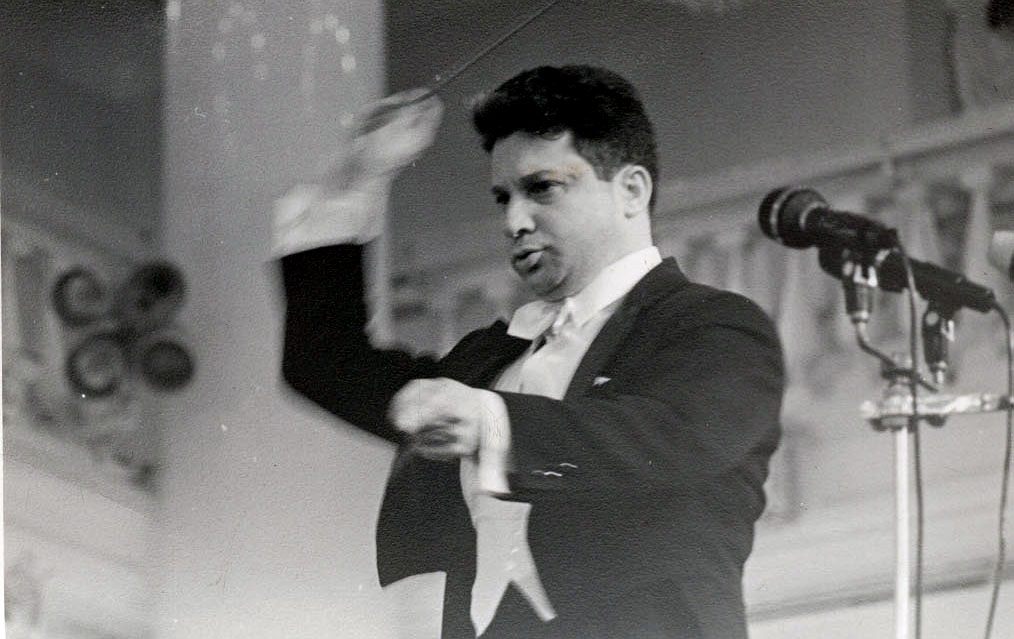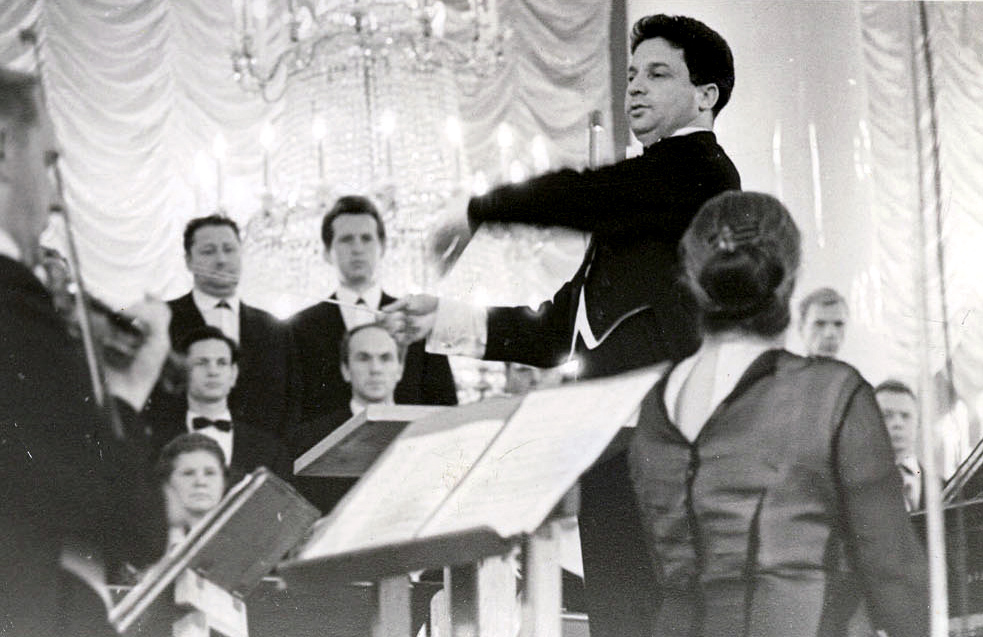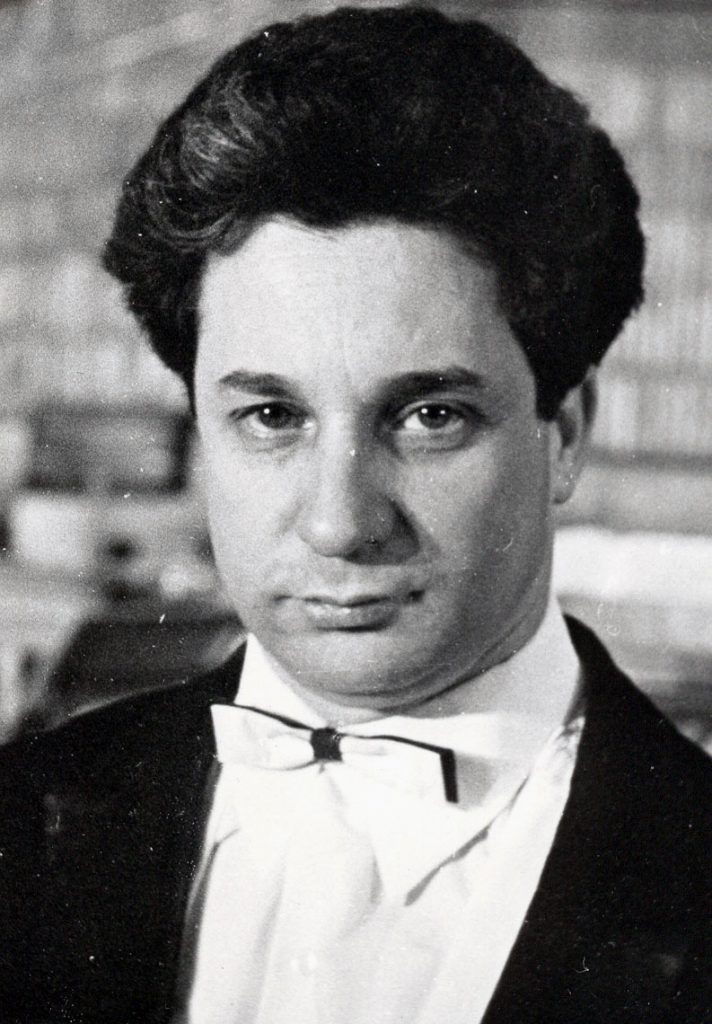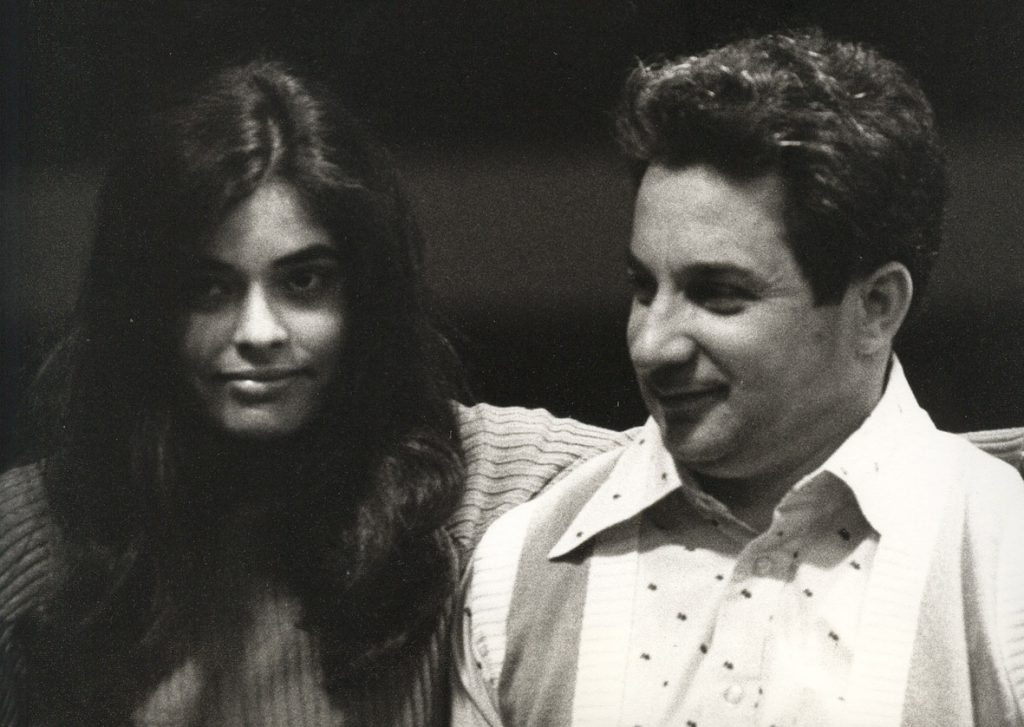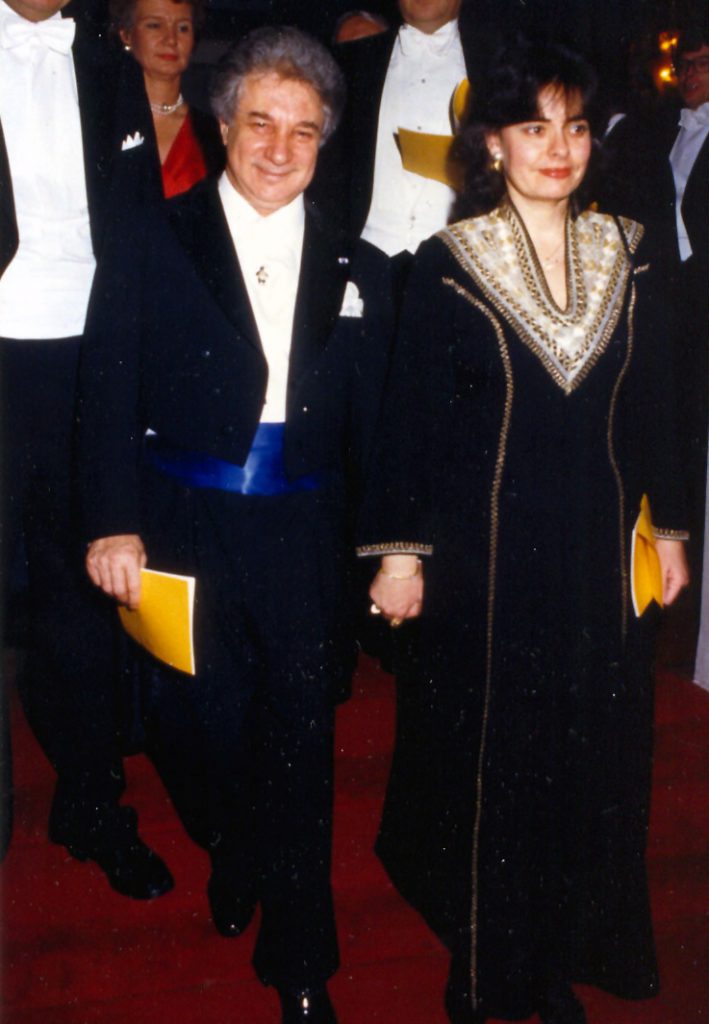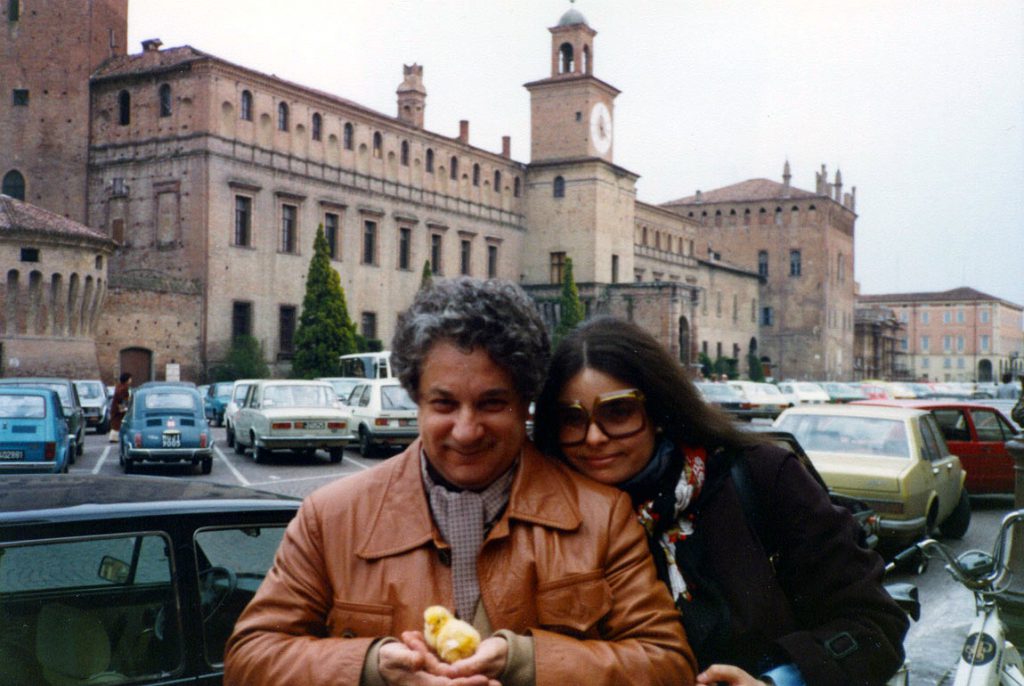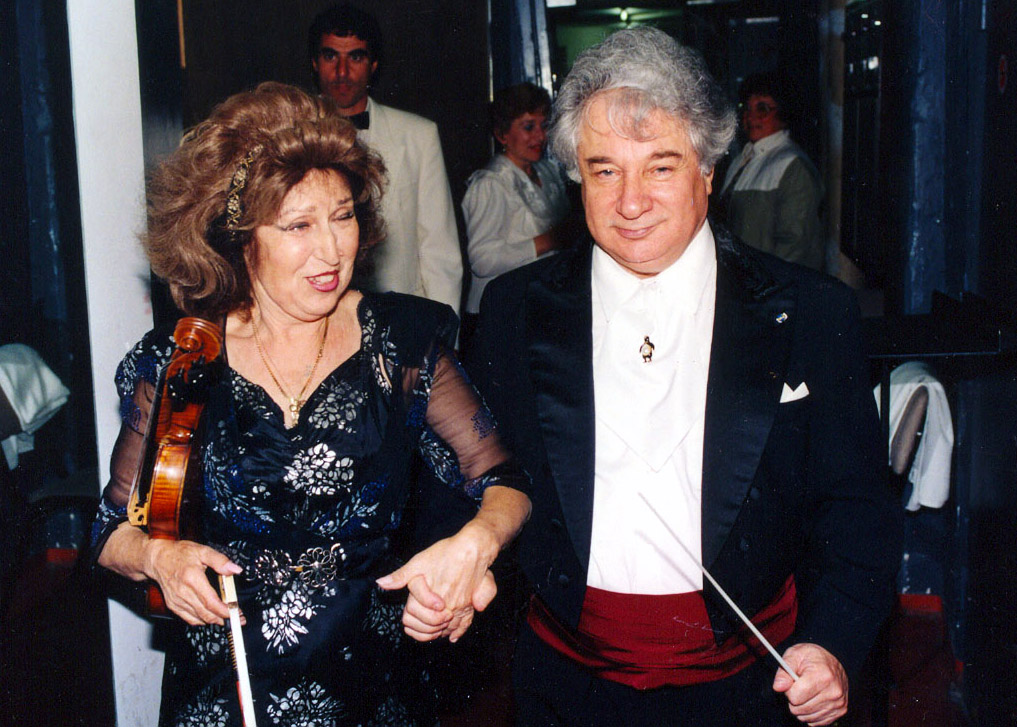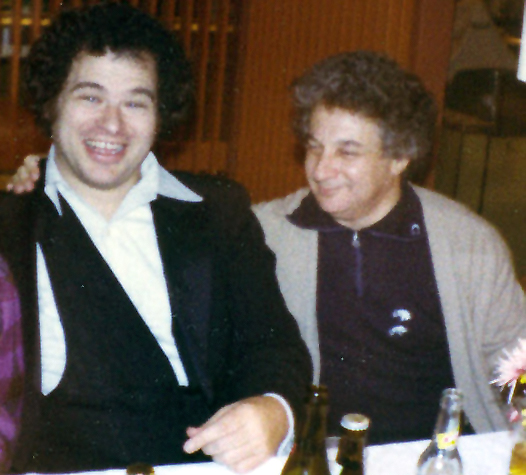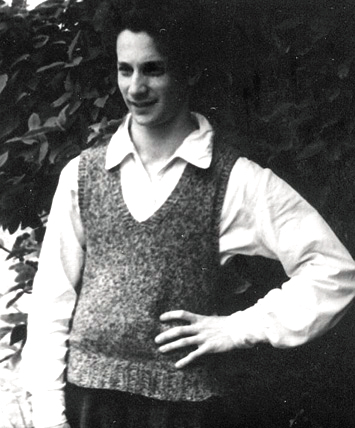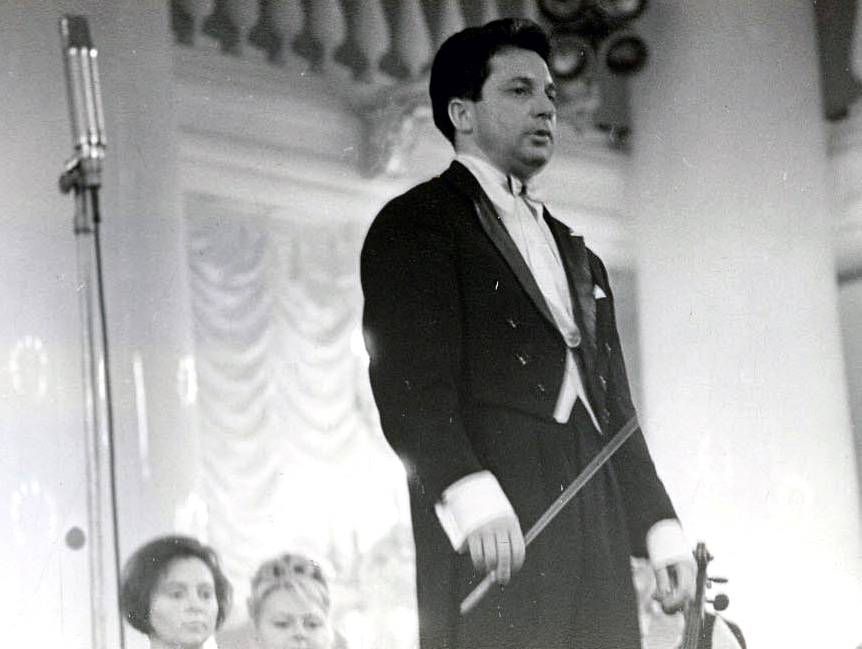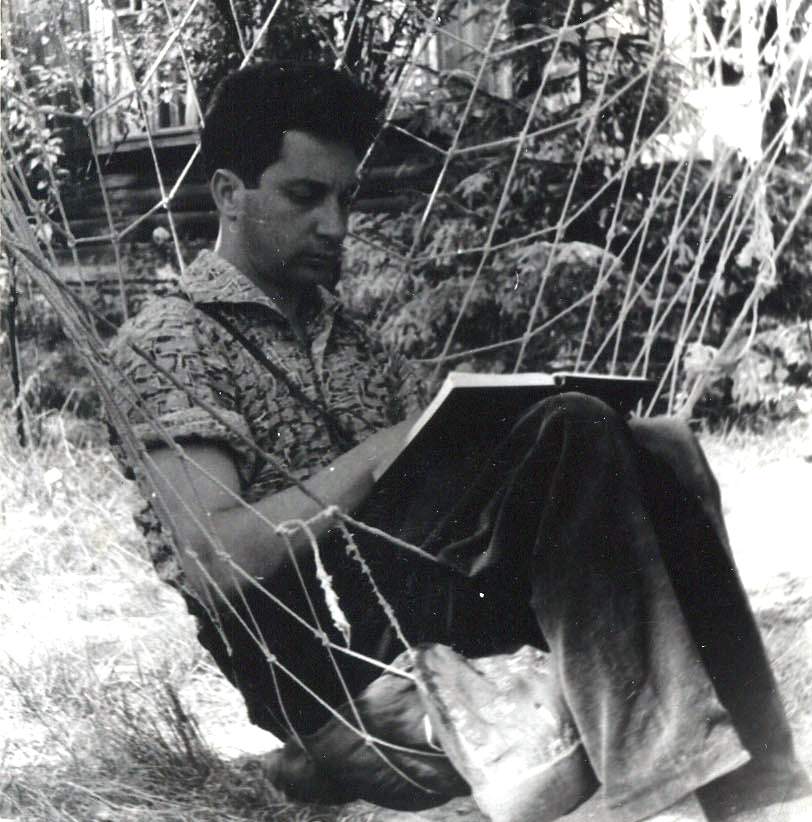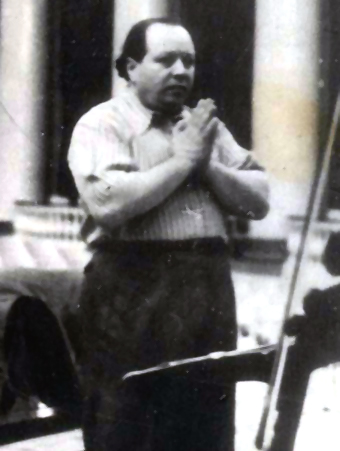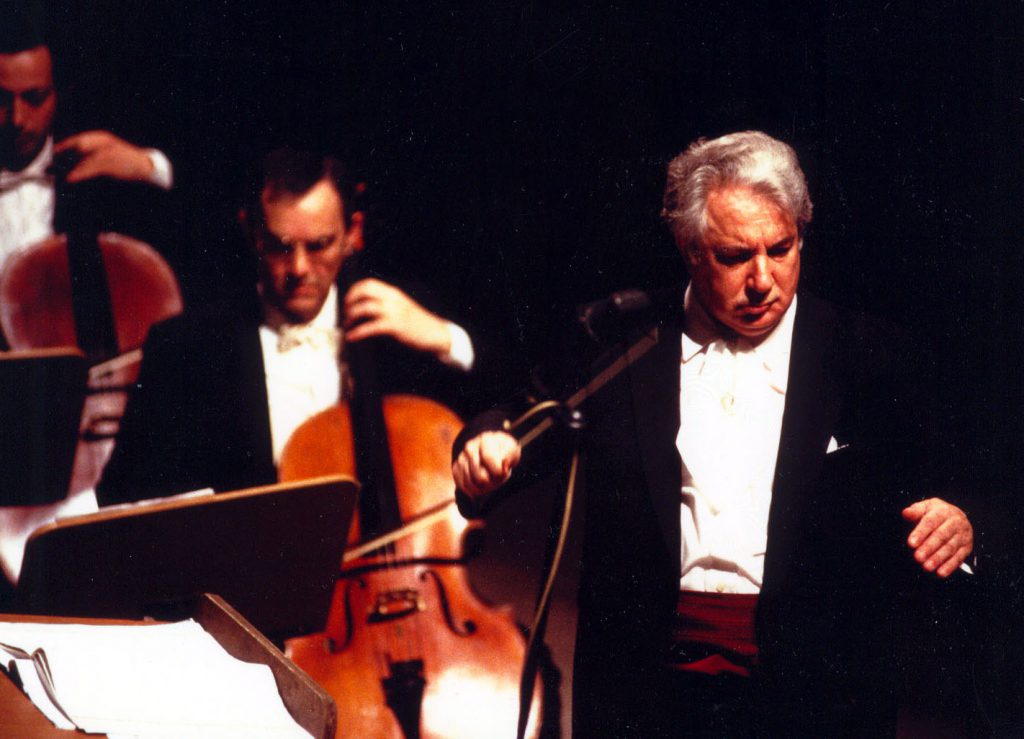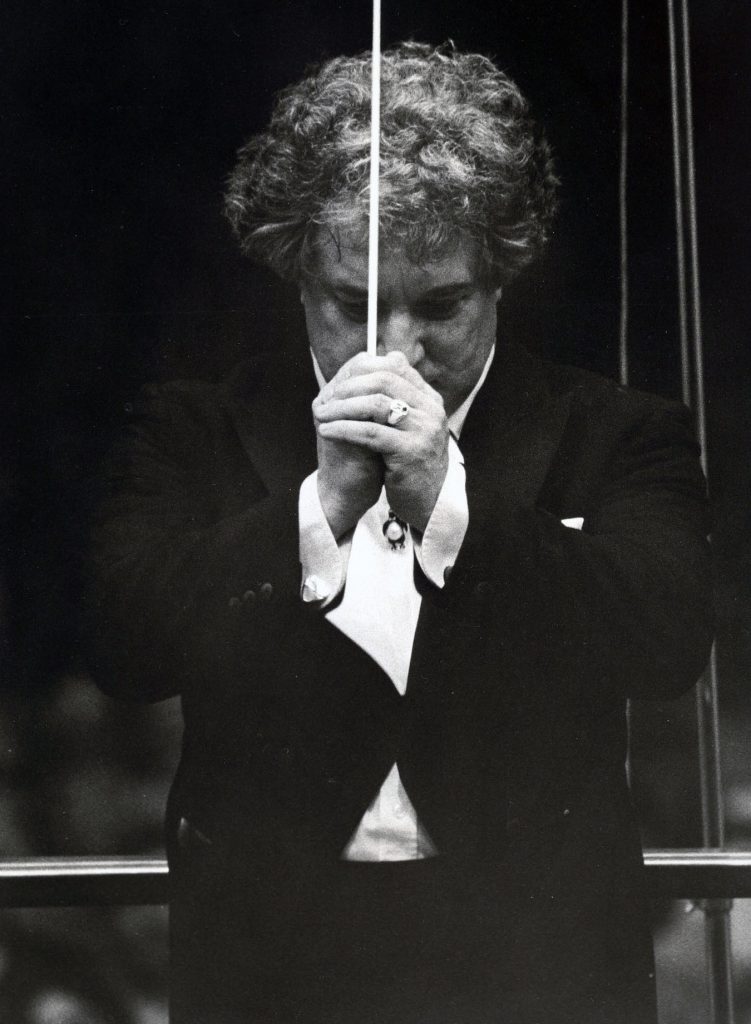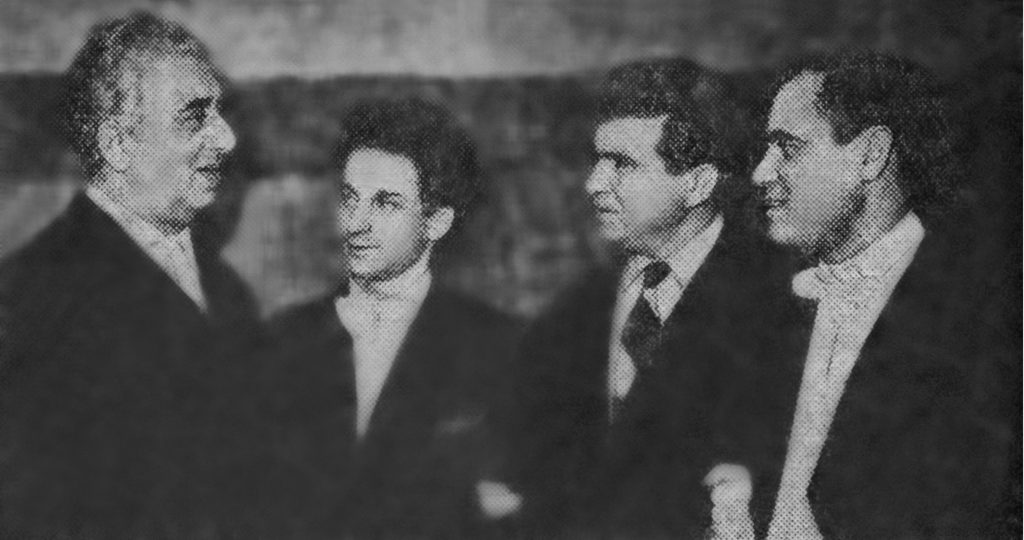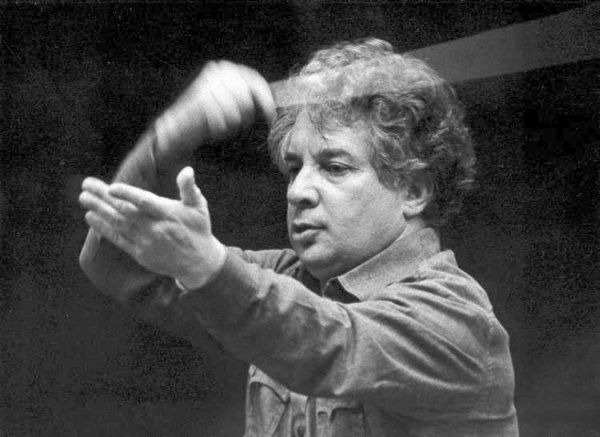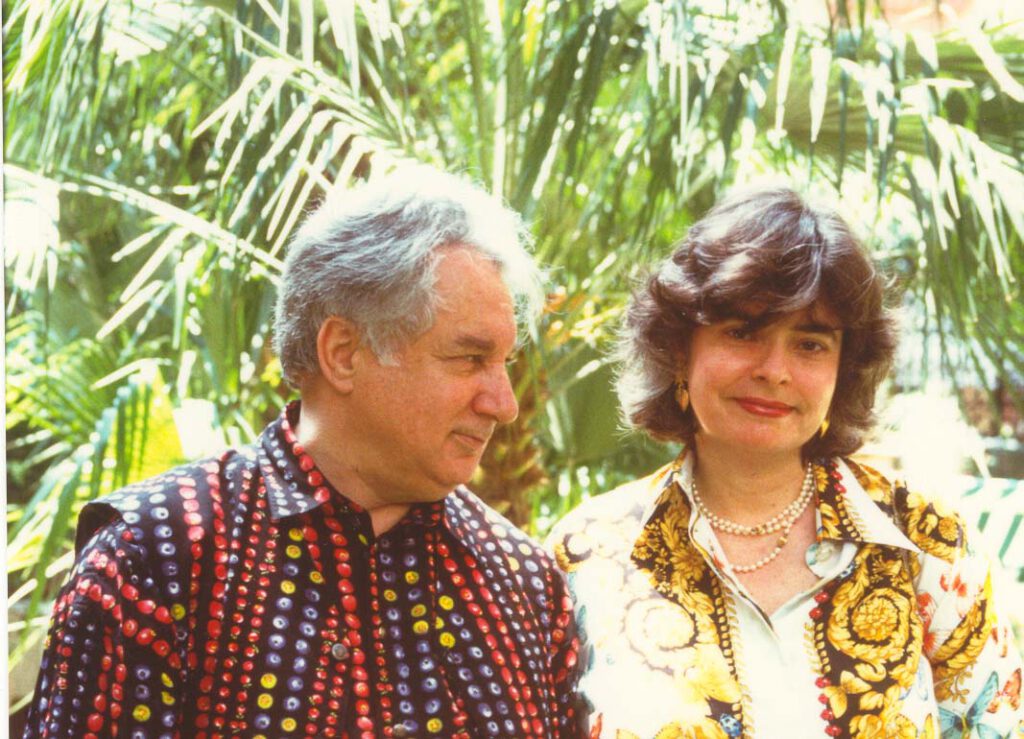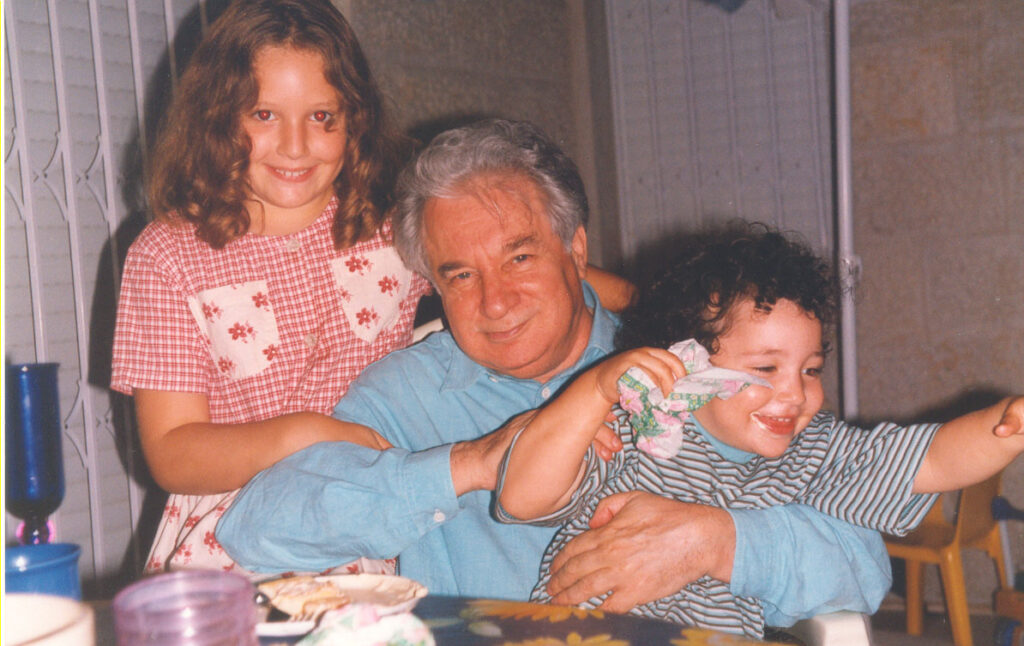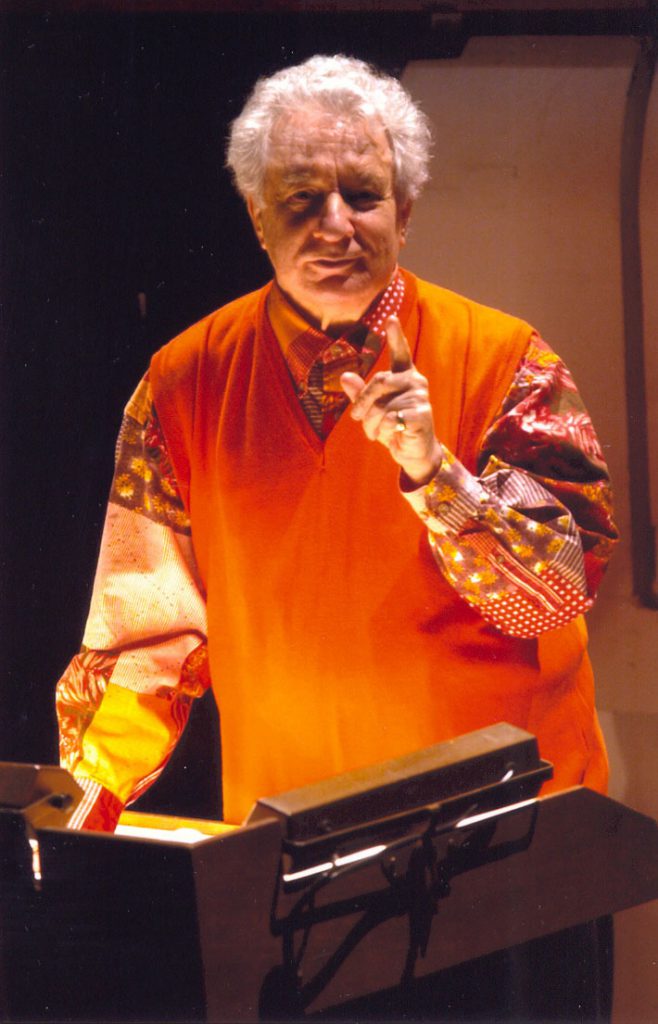YURI AHRONOVITCH
was born on May 13, 1932 in Leningrad (St. Petersburg). Yuri’s mother, Anna Eskina worked as a Jurist at the city’s District Court.
His father Michael, an amateur violinist, born to a family of musicians, was a mathematician teaching at the University of Leningrad.
Yuri started to study the Violin at the age of four. Attending Tchaikowsky’s ” Swan Lake” at the Kirov-Theater at the age of five, became a decisive moment in his life. Fascinated by the music, the conductor, the orchestra and the stage, he told his astonished parents of his determination to become himself a conductor.
Despite the turmoil of war, under horrendous conditions and great personal sacrifice, he graduated the violin class at the Leningrad Conservatory high school in 1950 and was admitted to the Leningrad “Rimsky- Korsakov”
Conservatory’s Symphony Conductors School, in the conducting class of Nikolai Rabinovich, from which he graduated “cum laude” in 1954. During his years at the Conservatory, he also studied with the conductor Kurt Sanderling.
A greatly influential conductor in Yuri’s professional life was one of the most outstanding conductors and personalities in the musical world of Russia, Nathan Rachlin, with whom he studied for many years. Yuri Ahronovitch admired Nathan Rachlin both as a conductor, friend, mentor and human being, preserving for posterity Rachlin’s legendary art and style. Unfortunately, Rachlin’s extraordinary artistic talent never found international acclaim, as he was prohibited from traveling outside the Soviet Union.
At the age of 22 upon graduating Leningrad’s “Rimsky-Korsakov” Conservatory, he was offered his first position as Chief Conductor and Musical Director of the North Russian Petrozavodsk Symphony Orchestra. In 1956 Yuri worked as Conductor and Musical Director of the Saratov Symphony Orchestra and simultaneously was invited to lead the orchestral class of the Saratov Music Conservatory, thus becoming the youngest
director of a conductor class, in the USSR at that time.
In the summer of 1957, Yuri was awarded the first prize at the National Youth and Students Festival, conducting the Saratov Conservatory Orchestra. In August 1 957, conducting the same ensemble, he was awarded with the Honors Diploma at the Sixth World Youth and Students Festival in Moscow.
During the years 1957-1964 Yuri Ahronovitch served as Chief Conductor and Musical Director of the Yaroslavl Philharmonic Orchestra, thus transforming the Orchestra into a high-class ensemble, which drew world-renowned soloists like Leonid Kogan, Emil Gilels, Maria Yudina, and Vladimir Sofronitski.
Already in Yaroslavl, he started an extensive activity, to promote the compositions of modern Soviet composers like Tichon Khrenikow, Aram Khachaturian, Rodion Shedrin, and many more.
During the 1962/63 season, Yuri Ahronovitch made his debut with the Leningrad Philharmonic Orchestra, with Emil Gilels as the soloist. The extraordinary relationship between both artists began in 1957 in Yaroslavl, during their first concert together. There, on stage, Gilels took off his frack and presented it to Yuri as a token of his gratitude and admiration.
Their spontaneous and long-lasting friendship lasted until the death of Emil Gilels in 1985.
In 1964 Yuri Ahronovitch was appointed Chief Conductor and Musical Director of the Symphony Orchestra of All-Union Radio and
Television ** – Symfonicheski Orkester Vsesoyuznogo Radio I Televidenia. There he presented a wide repertory of Symphonic works, as well as operas. One of his greatest achievements in his work with the orchestra
was significantly raising its artistic level, thus transforming it into one of the leading musical ensembles of the Soviet Union. Most prominent soloist became guests of the orchestra among which Vladimir Atlantov, Emil Gilels, Leonid Kogan, Yelena Obrastzova, John Ogdon, David Oistrach, Mstislav Rostropovitch, Viktor Tretyakov, Maria Yudina, Yakov Zak, Stanislav Neigaus (Neuhaus).
The only exception was a tour to the former East Germ any in 1965. Visiting West-Berlin on that occasion, concerned that he might not be allowed to ever again meet his mother in Leningrad, and thus subjecting her to retaliation, he did not take the chance of staying in the West.
On March 2, 1972, Yuri Ahronovitch emigrated to Israel. Leaving the Soviet Union, he took his rich library of music scores and books. The Soviet authorities did not allow Yuri Ahronovitch to take with him any of his possessions, personal belongings, and documents.
Soon after his arrival to Israel, he was invited to conduct the Israel Philharmonic Orchestra, and the Radio-Symphony- Orchestra of Jerusalem.
Immediate Invitations followed from leading western orchestras among which: Sinfonieorchester des Bayerischen Rundfunks, Orchestre National de France, The London’s Royal Philharmonic Orchestra, The London.
In July 1972, a few months after his arrival to Israel, he met in Jerusalem, the young Israeli literature student, Tami Sakson, who became his inseparable partner, wife, and friend, sharing his life until his death on October 31st, 2002.
In 1975 he was appointed Principal Conductor of The Cologne Philharmonic Orchestra (Kölner Gurzenich – Orchester), a position he held until 1986. During these eleven years, Yuri Ahronovitch presented an extensive and often unconventional repertory, which included almost 70 different programs. In 1982, he appointed Principal Conductor of the Royal
Philharmonic Orchestra, Stockholm. His vast varied repertory included numerous world premieres and works of contemporary international composers.
In 1984 he became a member of the Royal Swedish Academy of Music, and in 1987 the Swedish King bestowed upon him the highest Swedish honor, the Commander of the Royal Order of the Polar Star”. Furthermore, in 1991 he was honored with the “Arca d’Oro” prize by the leading Italian newspaper “La Stampa ” in cooperation with the University of Turin.
Besides working as Principal Conductor during these years, Yuri Ahronovitch traveled the world, conducting many of the world’s most distinguished orchestras. To name just a few:
Detroit Symphony Orchestra, The Orchestra of Maggio Musicale Fiorentino in Florence, Jerusalem Symphony Orchestra, Israel Philharmonic Orchestra, London Symphony Orchestra, London’s Royal Philharmonic
Orchestra, The Orchestra of Milan Teatro Alla Scala, New York Philharmonic Orchestra, Orchester de Paris, all Radio Orchestras of Belgium, Denmark, Germany, Israel, Italy, BBC London, Spain & Switzerland, Rome’s Orchestra Nationale di Santa Cecilia, Tokyo’s Yomiuri Symphony Orchestra, Wiener Sinfoniker.
In addition, Yuri conducted in the worlds major opera houses, among others: The Bayerische Staatsoper Munchen, Chicago’s Lyric Opera, Geneva’s Grand Theatre, Italian opera houses such as Genova, Rome, Torin o, Puccini-Festival in Torre del Lago, Venice, Arena di Verona, The London Royal Opera House Covent Garden, The Opera Festival of Savonlinna in Finland and The Royal Opera of Stockholm.
Additional International Music Festivals where Yuri Ahronovitch guest conducted are among others: Bergen -Festival in Norway, Bregenzer Festspiele, Gran Canaria Music-Festival, Daytona Beach Festival in Florida, Meadow Brook Festival in Detroit, Mahler-Festival Dusseldorf, Israel Festival, Luzern Festival, Rheingau-Musikfestival, Settembre Musica in Torin o, the festivals of Ascona/Locarn o, Stresa, Spoleto, Santander, Turku Finland.
He toured, among others, with the following orchestras: the Orchestre National de France, The Cologne Philharmonic Orchestra (Gurzenich Orchester), London Symphony Orchestra, London’s Royal Philharmonic Orchestra, London’s Royal Opera House Covent Garden Orchestra, the Moscow Radio Symphony Orchestra, the New York Philharmonic Orchestra, the Radio Symphony Orches teras of, Baden -Baden, Berlin, Hamburg, and Stuttgart, the Stockholm Philharmonic Orchestra and the Wiener Sinfoniker. He collaborated with the most acclaimed instrumentalists and vocalists of the 20th Century. Space limitation allows only for Atlantov, Vladimir Ashkenazy, Janet Baker, Alfred Brendel, Rudolf Buchbin der, Boris Christoff, Van Cliburn, Clifford Curzon, Placido Domingo, Pierre Fournier, Ida Haendel, Nicolai Gedda, Natalia Gutman, Gwyneth Jones, Raina Kabaiwanska, Wilhelm Kempff, Leonid Kogan, David Kuebler, Katia & Marielle Labeque, Radu Lupo, Yo Yo Ma, Nikita Magaloff, Edith Mathis, Shlomo Mintz, John Ogdon, Wieslaw Ochman, David Oistrach, Itzhak Perlm an, Maurizio Pollini, Hermann Prey, Alicia de la Rocha, Mstislav Rostropovich, Yelena Obrastzova, Matti Salminen, Heinrich Schiff, Peter Schreier, Gil Shaham, Max Von Sydov, Henryk Szering, Matti Talvela, Paul Tortellier, Viktor Tretyakov, Julia Varady, Jon Vickers, Alexis Weissenberg, Pinchas Zukerman, Frank Peter Zimmermann, and many others.
Yuri Ahronovitch made a distinguished number of recordings, primarily with the London Symphony Orchestra, the Stockholm Philharmonic Orchestra, and the Wiener Sinfoniker.
Yuri has always put a great emphasis on the musical education of young gifted musicians.
He gave highly acclaimed international Master Classes in the art of conducting, among others at the Riva del Garda Festival and at Siena’s Accademia Chigiana in Italy.
During his lifetime, Yuri Ahronovitch had arranged off hobbies, which gave him genuine pleasure. Since childhood, he collected all possible models of photo cameras. He had distinguished collections of old films, watches, pipes, and a vast library, with a special preference for books about music, history, biographies, and classical masterpieces. He adored driving his cars and motorcycles on long-distance trips in Russia, as well as in the west.
On October 3 1, 2002 the musical world lost in Yuri Ahronovitch a conductor whose passion and mastery was grounded in the interpretation of romantic musical works, which embodied for him the human soul. His mastery spanned on a wide range of compositions from Baroque until the late 20 Century composers.
He withstood the pressures of the international mainstream and was always a conductor for whom the musical work and its composer ranked first. He compared with great care and detail the original scores with later editions, to assure that its integrity was maintained and that the composer was not “illegally” compromised or shortchanged, celebrating the composer’s legacy.
His teacher, Nathan Rachlin, once said to him: “Obviously you were born in the early morning hours of the day, because in the evening you already conducted your first concert.”. This sentence summarizes Yuri Ahronovitch’s passion for music.
Yuri Ahronovitch bid his farewell, in Paris in October 2002, conducting the Orchestre de Paris at the Theatre Mogador. The program included Alexander Scriabin’s 3rd symphony “Le Divin Poeme”, the very symphony he conducted at his first west European concert, in Helsinki, in November 1972.
A vital clarifying note In the process of researching and reconstructing Yuri Ahronovitch ‘s professional life in the former Soviet Union in the years 1954-71, great difficulties and complications were encountered. The emigration of Yuri Ahronovitch, one of the most prominent artistic figures in the Soviet Union, has enraged and greatly irritated the Soviet Authorities.
Following the complete failure of their efforts to alter his firm desire to leave the country, the order was given to remove his name from all the radio and TV archives, as well as all music dictionaries, recordings, and any information concerning the Soviet music world. As the destiny of many artists before him, Yuri Ahronovitch, one of the most prominent artistic figures in the Soviet music world became a “nonperson” for the Soviet Union.
This is the reason why only a fraction of his musical life in the Soviet Union, during those 17 years, could have been reconstructed.
Unfortunately, many concerts, orchestra tours, records, Radio- TV recordings, and Operas have been intentionally destroyed.
The research of those years continues. Any discovery will be added on due course to the Yuri Ahronovitch web site.
A small sample of quotations by Yuri Ahronovitch
1. Quotation from Yuri’s interview in Denmark’s Television in Copenhagen, 1980
“A selfish conductor will never be able to reach genuine artistic heights. The conductor’s baton does not sound alone, what sounds is the orchestra. Only if true trust and esteem exist between the orchestra and the conductor, only when the composer is greatly respected by the conductor and the orchestra, only when harmony reigns among all these components, then there is hope for a high-quality performance. ‘
2. Quotations from Yuri’s interview in Swedish Television in Stockholm, 1986 “I have never been a commander of the orchestra, I have always been a colleague, a friend, and a partner.” “We all have an ideal. My ideal is to be as close and as faithful to the composer, as one can possibly be, “
A quotation that is the testimony of an unalterable truth:
“At a time when our world is increasingly characterized by technology, it is important to remember this: as human beings, we must relearn to connect, we must feel each other again in order to foster and celebrate human understanding. Music can affect this because music always was, is, and will be what binds.

